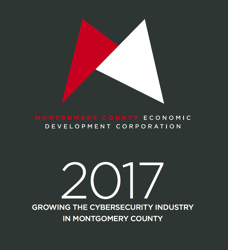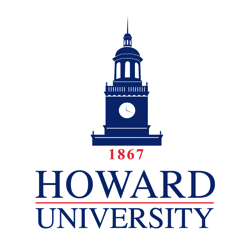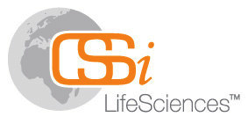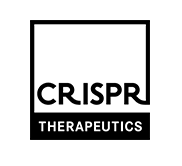
BioHealth Innovation, Inc. (BHI), a regional innovation intermediary focused on commercializing market-relevant bio-health innovations and increasing access to early-stage funding in Maryland, has been awarded a renewal of its contract to extend and expand its entrepreneur-in-residence (EIR) program with the National Institutes of Health (NIH). BHI will place EIRs within the National Heart, Lung and Blood Institute (NHLBI), the NIH Office of the Director and other NIH Institutes and Centers.
The EIR program was established with NIH in 2012 with BHI's support. The program is set-up to achieve the mission of NIH by applying knowledge gained through discoveries to solutions for patients with unmet clinical needs. EIRs who participate in this program have prior experience maneuvering through multi-disciplinary technical challenges and the business and regulatory environment to deploy new healthcare solutions.
Due to the program's initial success, the EIR program was expanded in 2015 to include NIH's associated offices and institutes. The new term extends for an 18-month period from February 2017 through August 2018, with an option to renew for an additional 18 months.
"Expanding and extending our partnership with the federal government's leading medical research agency is an honor that builds on our work together filling key EIR roles over the last few years," said Richard Bendis, BHI President and CEO. "We've placed some of the most innovative and business-centered minds in biohealth and biotech and will continue to do so as we fill EIR roles that will drive cutting-edge approaches to commercializing medical devices and therapies."
BHI can retain the services of up to six EIRs as a part of this program with NIH. The EIRs will be assigned to the appropriate facilities, and their task will be to foster collaboration between NIH leadership and the biohealth industry, while providing the agency with industry insights into innovation and commercialization perspectives in research and development. They will also help to guide NIH scientists, academics and small business innovators on best practices.
More information can be found at http://www.biohealthinnovation.org/programs/entrepreneur-in-residence-program.
About BioHealth Innovation, Inc.BioHealth Innovation, Inc., is a regional innovation intermediary focused on commercializing market-relevant bio-health innovations and increasing access to early-stage funding in Maryland. BHI is known for providing commercial assistance to scientists and founders, educating and infusing Maryland's life science community with new and young entrepreneurs and fueling startups within Central Maryland's bio-ecosystem by connecting young companies to funding and business resources. Learn more at www.biohealthinnovation.org.

This invitation-only event is free for executive level biotech leaders and is presented by BioHealth Innovation, VirginiaBio, Paragon Bioservices, Inova, University System of Maryland and MedImmune/AstraZeneca. Maryland, Virginia, and Washington, DC set the bar high for biotech innovation. So please join us for our Annual BioHealth Capital Region Forum that will highlight the accomplishments of today and chart our successes of tomorrow.
We are excited to bring you an exceptional line up of speakers. The program will feature sessions that focus on Advancing Science and Accelerating Innovation.

The Johns Hopkins University's newest business incubator, set to open formally at the end of April, adds more office and lab space to spur the school's ongoing effort to commercialize research.
FastForward 1812, located in the East Baltimore development area at 1812 Ashland Ave., offers a home to startup companies trying to build products that grow out of research at the univeristy or its medical school. It's also open to other Baltimore-area entrepreneurs.

Redox, the leading integration platform for digital healthcare applications and health systems, announced today that the Intermountain Healthcare Innovation Fund has invested $1 million as a follow-on to the company’s recently announced Series B, bringing the final closing to $10 million. The round was led by RRE Ventures with participation from .406 Ventures, HealthX Ventures, Flybridge Capital Partners, and Dreamit Ventures.

Student and faculty entrepreneurs have until April 14 to apply for the first round of funding from the University System of Maryland's new $25 million venture fund.

Located in Rockville town center, ReveraGen is a fast-growing clinical-stage drug development company with a focus on developing therapeutics for Duchenne muscular dystrophy. We run under a venture philanthropy model, through collaborations and partnerships with non-profit foundations and government agencies in both the US and the EU. We are currently looking for self-motived professionals to join our young, energetic and diverse team.
Position Open: Project Coordinator
Main Duties:
- Takes responsibility and manages defined projects
- Keeps track of and coordinates projects by follow up on tasks and results, tracking and recordingthe projects’ progress by proper tools and software, and reports deviations back to the VicePresident of Operations.
- Creates, revises and implements standard operating procedures
- Produces information by transcribing, formatting, inputting, editing, retrieving, copying, andtransmitting text, data, and graphics.
- Represents the the Vice President of Operations in the absence of the Vice President ofOperations.
- Protects operations by keeping information confidential.
Requirements:
- Pharmaceutical or clinical research background preferred
- Excellent communication skills (both oral and written)
- B.S. or B.A. Degree required
- Familiar with Microsoft Office software package (Outlook, PowerPoint, Word, Excel)
- Smartsheet knowledge/experience is a plus

WalletHub recently analyzed innovation nationwide to compile a list of the Most Innovative States. Maryland ranks second among the 50 states and Washington D.C. in WalletHub’s report, reinforcing what many in Maryland already know: Innovation thrives here. Here are five reasons why innovation flourishes in Maryland.

Four years into its existence, Cydan Development, New Enterprise Associates’ orphan drug startup accelerator, has notched its first big win. Vtesse, the first company to emerge from Cydan, has been sold in a deal valued at $200 million.
Sucampo Pharmaceuticals (NASDAQ: SCMP), a Rockville, MD-based maker of a drug to treat various bowel conditions, will acquire Vtesse for $170 million in cash and 2,782,678 shares of Sucampo, which closed at $11 apiece on Friday. Vtesse’s shareholders—New Enterprise Associates (NEA), Alexandria Real Estate Equities, Bay City Capital, Pfizer Venture Investments, and Lundbeckfond Ventures—could also get royalties on sales if Vtesse’s experimental drug, VTS-270, ever reaches the market. The drug candidate is designed to be a potential treatment for the rare genetic condition Niemann-Pick Type C1 disease, which mostly affects children.

Almost four years after the launch of the Ten by Twenty vision plan, Johns Hopkins University President Ronald J. Daniels today invited the university community to explore a second update on the institution's progress and share feedback.

Big funding deals across a number of industries propelled the D.C. area to one of its best first quarters in recent venture capital memory, setting the stage for a strong 2017.

With the push to encourage researchers to take steps to commercialize their discoveries, there are grants and awards and tech transfer offices and incubators and competitions and…
But receiving money doesn’t automatically mean that a successful business will appear right away. Like all startups, they need to identify the potential market for a product, and come up with a plan.

With the county’s proximity to the nation’s capital and the federal government, combined with our highly educated workforce, Montgomery County is rapidly growing as a global cybersecurity power hub.
The MCEDC board has identified cybersecurity as a target industry, and commissioned a 2017 report called “Building a Cybersecurity Industry in Montgomery County.”

It's not the current product lineups that matter the most for big pharma companies. It's their pipelines.
Three big pharma companies boasting the strongest pipelines are Johnson & Johnson (NYSE: JNJ), Novartis (NYSE: NVS), and Roche (NASDAQOTH: RHHBY). Here's what sets these drugmakers apart from their peers.

Standing to address a crowd of biotech business leaders and health experts at a conference hosted by Virginia's biotechnology association this week, Inova Center for Personalized Health CEO Todd Stottlemyer began with a question.

Much has been written about the role of the creative economy as a key indicator of economic health. The “rise of the creative class” and “creative clusters” are concepts that inform the larger conversation on cities as the economic drivers of regions. As a result, everyone from academics to governments are increasingly looking for ways to measure the scope and size of the creative economy.

It’s been over a year since Mayor Muriel Bowser broke ground on the new Inclusive Innovation Incubator based on Howard University’s campus, and now the space is getting ready to open its doors.
The incubator which, as the name suggests, aims to host and support diverse entrepreneurs, will officially open to the public with a “Week of Welcome” starting April 17. The week will feature a total of 30 events in the space — everything from coding classes to meetups and even a class on fitness for entrepreneurs. Most events are free and will give the D.C. startup (or would-be startup) community a chance to get a feel for the place.

CSSi LifeSciences™, a trusted partner from discovery to commercialization for biologics and vaccines, is pleased to announce a strategic partnership with the Prince William Science Accelerator, the only public-private commercially available wet lab space in Northern Virginia. The partnership promotes the development of new businesses and the retention and expansion of existing businesses within the county's growing and diverse life sciences community, through CSSi LifeSciences' technical assistance, regulatory, clinical and commercial assessment for all Prince William Science Accelerator tenants.

Entrepreneurship is a thrilling roller coaster ride. There are highs, but there are also lows. What isn’t talked about enough is the struggle that so many entrepreneurs face pursuing success. How do you navigate through the tough times? Where do you turn?
What do you do when you hit rock bottom?

Scientists and policy-makers have long argued that public investments in science have practical applications. Using data on patents linked to U.S. National Institutes of Health (NIH) grants over a 27-year period, we provide a large-scale accounting of linkages between public research investments and subsequent patenting. We find that about 10% of NIH grants generate a patent directly but 30% generate articles that are subsequently cited by patents. Although policy-makers often focus on direct patenting by academic scientists, the bulk of the effect of NIH research on patenting appears to be indirect. We also find no systematic relationship between the “basic” versus “applied” research focus of a grant and its propensity to be cited by a patent.

You're invited to LM's greatest event of the year! Join us on Tuesday, June 6 as we present the 2017 graduating Core, Senior and Emerging Leaders classes. Meet the newest community members, interact with our honored Award Recipients and network with key influencers in the region. A delicious dinner and an open bar are included.

No two stem cells are identical, even if they are genetic clones. This stunning diversity is revealed today in an enormous publicly available online catalogue of 3D stem cell images. The visuals were produced using deep learning analyses and cell lines altered with the gene-editing tool CRISPR. And soon the portal will allow researchers to predict variations in cell layouts that may foreshadow cancer and other diseases.

As with many new fields, synthetic biology—which incorporates disparate disciplines like engineering, computer science, biotechnology, and molecular biology—is hard to pin down. But a rough working definition says that it is the application of the principles of engineering to biological systems. Instead of using engineering’s discrete modules of code, transistors, resistors, and capacitors, synthetic biology builds things from sequences of genetic material. The field has remarkable potential and has already been used to aid the production of antimalarial drugs and synthetic flavorings. One researcher used mail-order DNA and a genetic map available online for free to create a live polio virus. The implications could be enormous.

Unicorns pranced all over Twitter Sunday as users celebrated an imaginary holiday for an imaginary creature. But some Twitter folk weren't in the mood for make-believe.
After all, who needs unicorns when majestic, spear-headed animals actually exist?